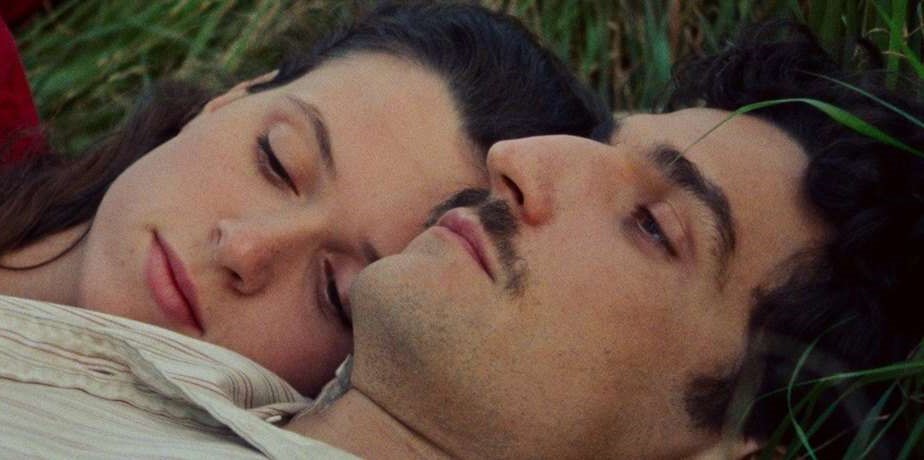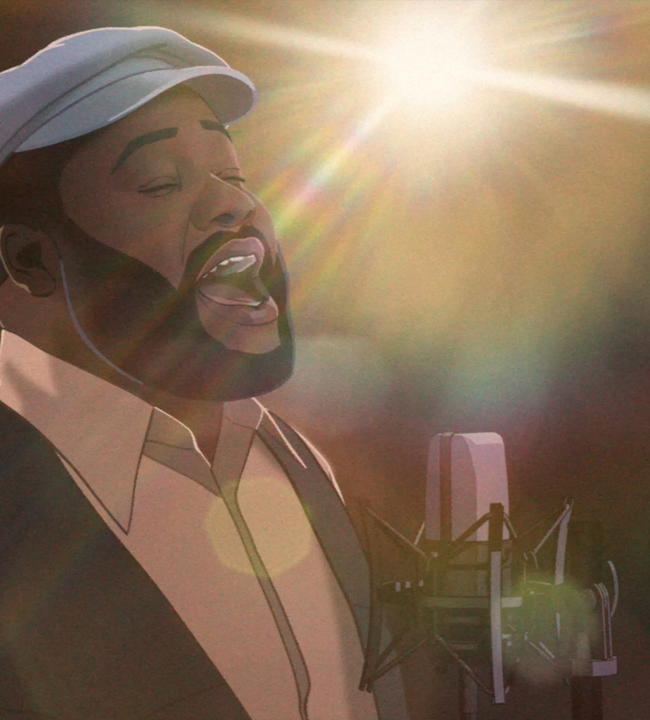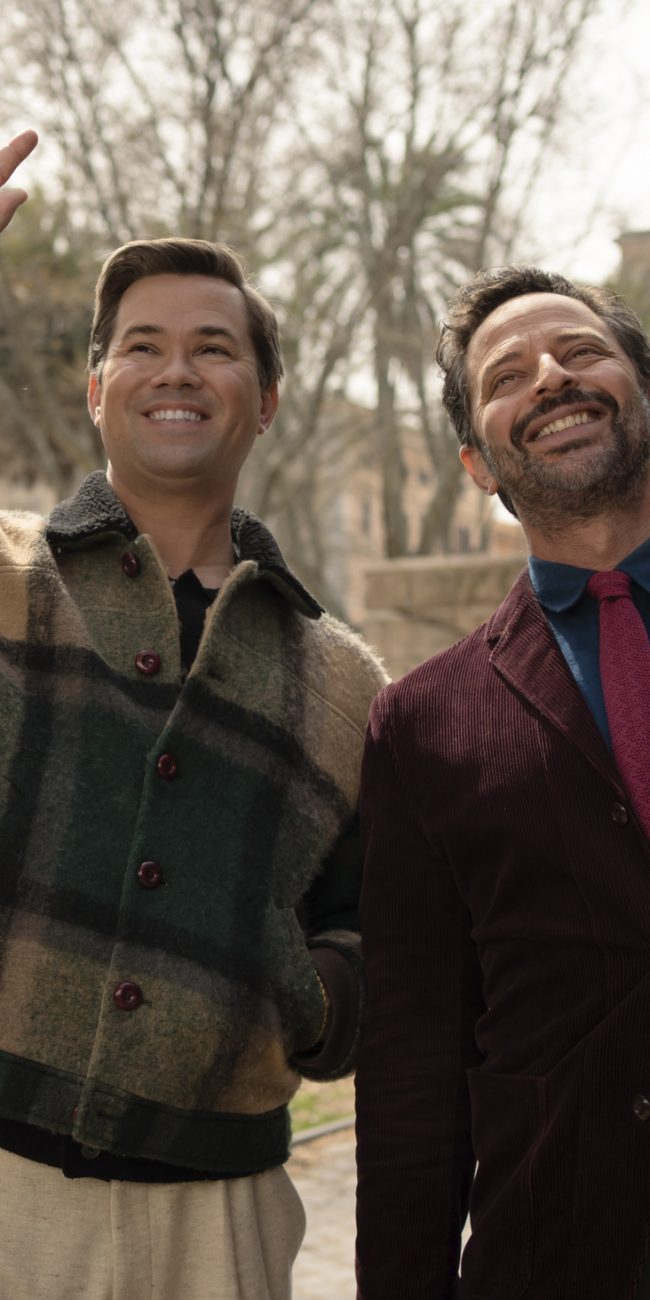SCARLET

(The 60th New York Film Festival (NYFF) ran September 30-October 16. Check out M.J. O’Toole’s movie review of Scarlet. Seen it? Join the conversation with HtN on our Letterboxd Page.)
Italian filmmaker Pietro Marcello began his career with a handful of documentaries. He became more widely known for his ambitious 2019 adaptation of Jack London’s Martin Eden. Now, he transitions from life pre-World War II Italy to post-World War I France in Scarlet. An adaptation of Russian novelist Alexander Grin’s 1923 novel Scarlet Sails, Marcello applies a similar method of filmmaking that gives it a very documentary-like aesthetic with the use of 35mm film and occasional use of archival footage as a substitute for historical sets. But Marcello also dips into the surreal and whimsical in this tender and endearing tale of a girl raised by her widowed father over the course of twenty years.
The film opens with Raphaël (Raphaël Thiéry), a rough-around-the-edges, towering veteran who returns from the war to his village and discovers his wife has died, yet given birth to a girl named Juliette. Until Raphaël’s return, she was raised by a strong-willed landowner, Madame Adeline (Noémie Lvovsky) who serves as a protector of sorts. We never learn about what Raphaël experienced during the war, but we can assume he’s carrying some level of PTSD. His love and devotion to his daughter give him purpose and the strength to move through life’s obstacles, especially ones of that particular era. For some reason, people look at him and his daughter cynically, and after he learns the tragic truth behind his wife’s death, it leads to him and his family becoming pariahs within the village. His struggle to maintain work as a carpenter is one way Marcello puts emphasis on the lower-working class, the way he did in Martin Eden as well as in his documentaries. But rather than paint Raphaël as a tragic victim of circumstance, he gives the character enough affection to make him a hero and an artist at heart.
As time goes by, Juliette grows into a young woman (lovely newcomer Juliette Jouan) who still has a close bond with her father and shares his passion for toy making. She has also grown into a strong-willed individual with musical talents, especially vocally, that brings the film to a level that teeters between a quasi-fairytale and a Jacques Demy musical. These scenes may puzzle some viewers after the grounded first half, but one can appreciate the film’s shift to more optimistic overtones. Juliette dreams of the day she’ll find a ship in the sky with “scarlet sails” as told to her in her childhood by an old river hag (Yolande Moreau). Her dream arrives in the form of a charismatic and swaggering pilot Jean (Louis Garrel) who lands in the village to have a broken motor fixed. He is first drawn to Juliette when he hears her singing a melodic tune, her voice beckoning down a river in a hypnotic moment very reminiscent of an old twentieth-century musical. Jean, Juliette, and Raphaël all seem to share the same dream of accomplishing what society at the time perceived to be the impossible.
Scarlet is more than a “dreamers will succeed” kind of tale. Marcello puts enough emphasis on class and societal reputation to immerse us in our heroes’ struggles as they all reach for the stars. But it doesn’t wallow in misery and gives these characters the courtesy of showing their own God-given strength. Whether it be in the form of Juliette standing up for herself against the wolfish catcalling village men, or Raphaël’s persistence to succeed in his craft as a woodworker and provide for his family. As time moves forward, Marcello signifies the beginning of a new era where more opportunities and progress are within reach.
In Scarlet, Marcello impressively reworks Grin’s original novel to emphasize the strengths and struggles of proletarian outcasts in French society. He is the kind of filmmaker who explores the working class from both a societal and historical context but gives these stories a more experimental style than filmmakers such as Ken Loach or Mike Leigh. The avant garde style is emphasized by Marco Graziaplena’s blissful cinematography and Gabriel Yared’s mellifluous score. The story is not as structured as Martin Eden, but it is more euphoric and enchanting. Playing the adult Juliette, actress Juliette Jouan is captivating in her first film role and her harmonious vocals will have viewers mesmerized. Raphaël Thiéry also gives a strong, commanding performance that evokes a sense of poignancy and resistance. Given the frequent shifts in mood and style, Scarlet is not the kind of film you can define by genre. Overall, viewers are in for an alluring, lyrical experience.
– M.J. O’Toole (@mj_otoole93)
2022 New York Film Festival; Pietro Marcello; Scarlet movie review











